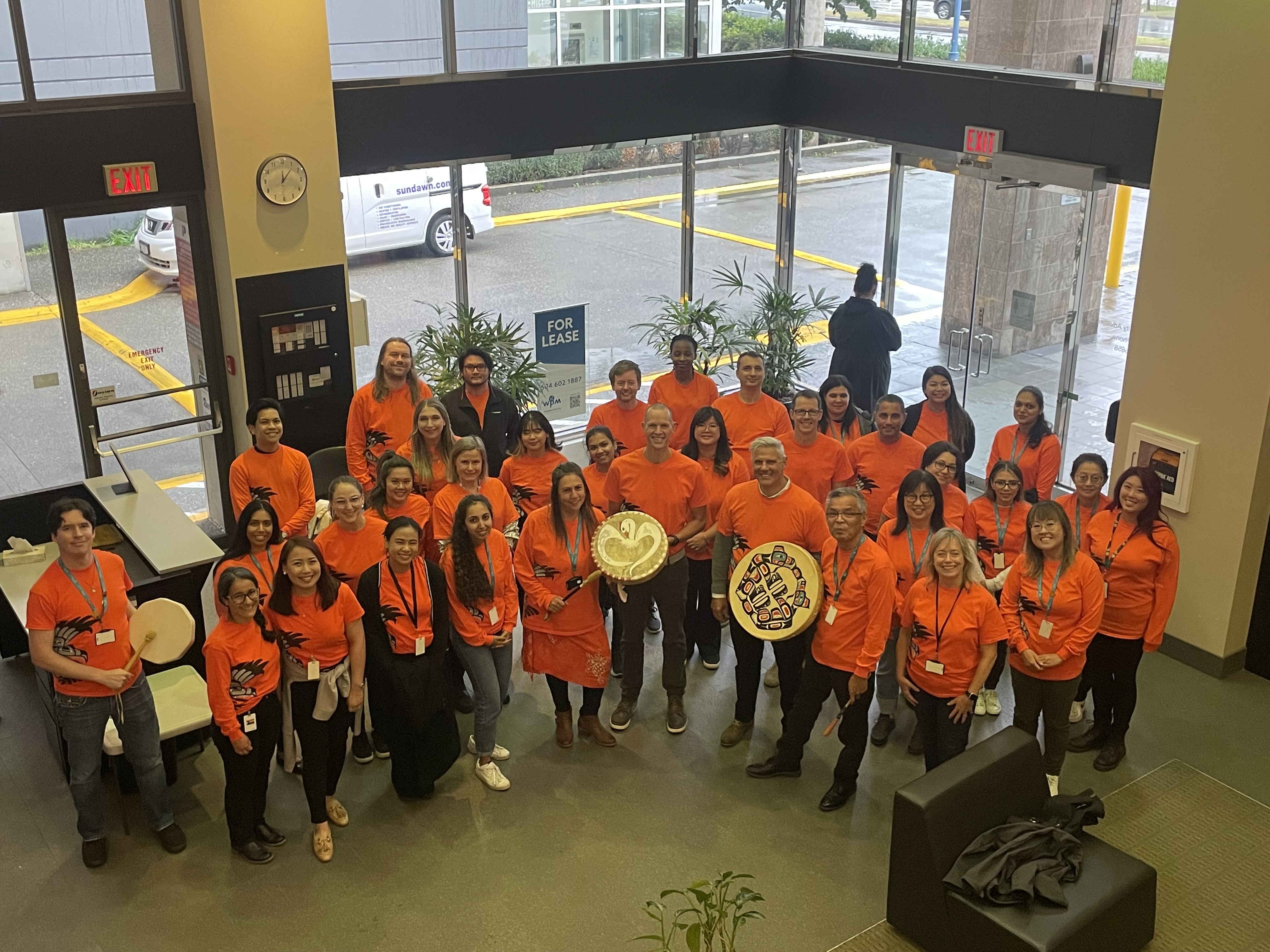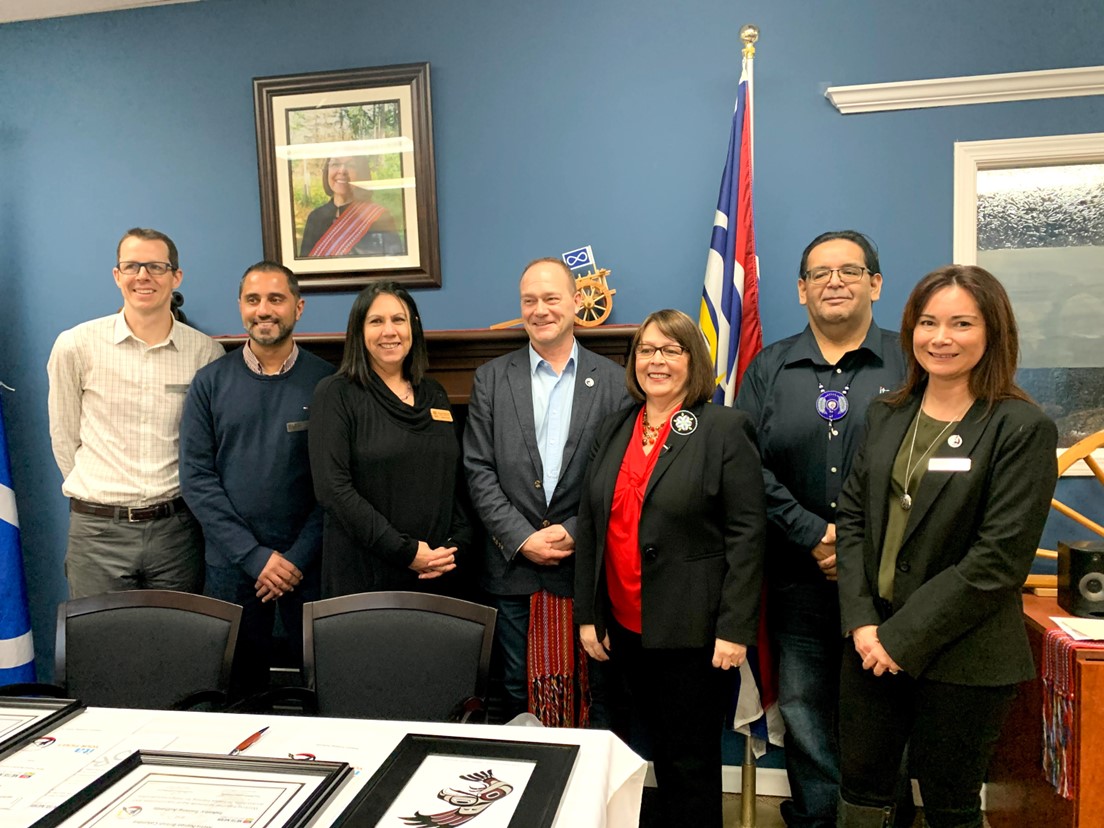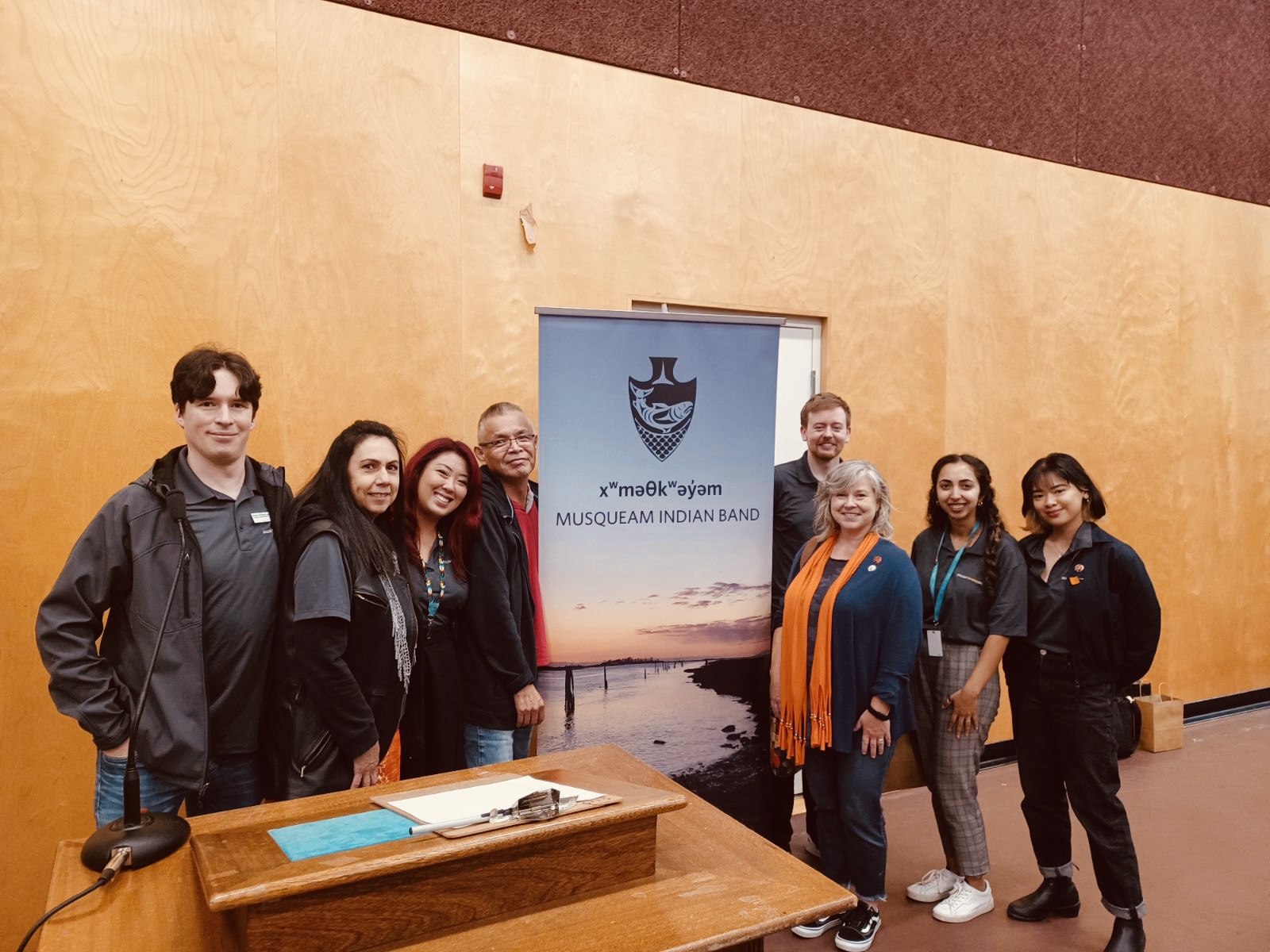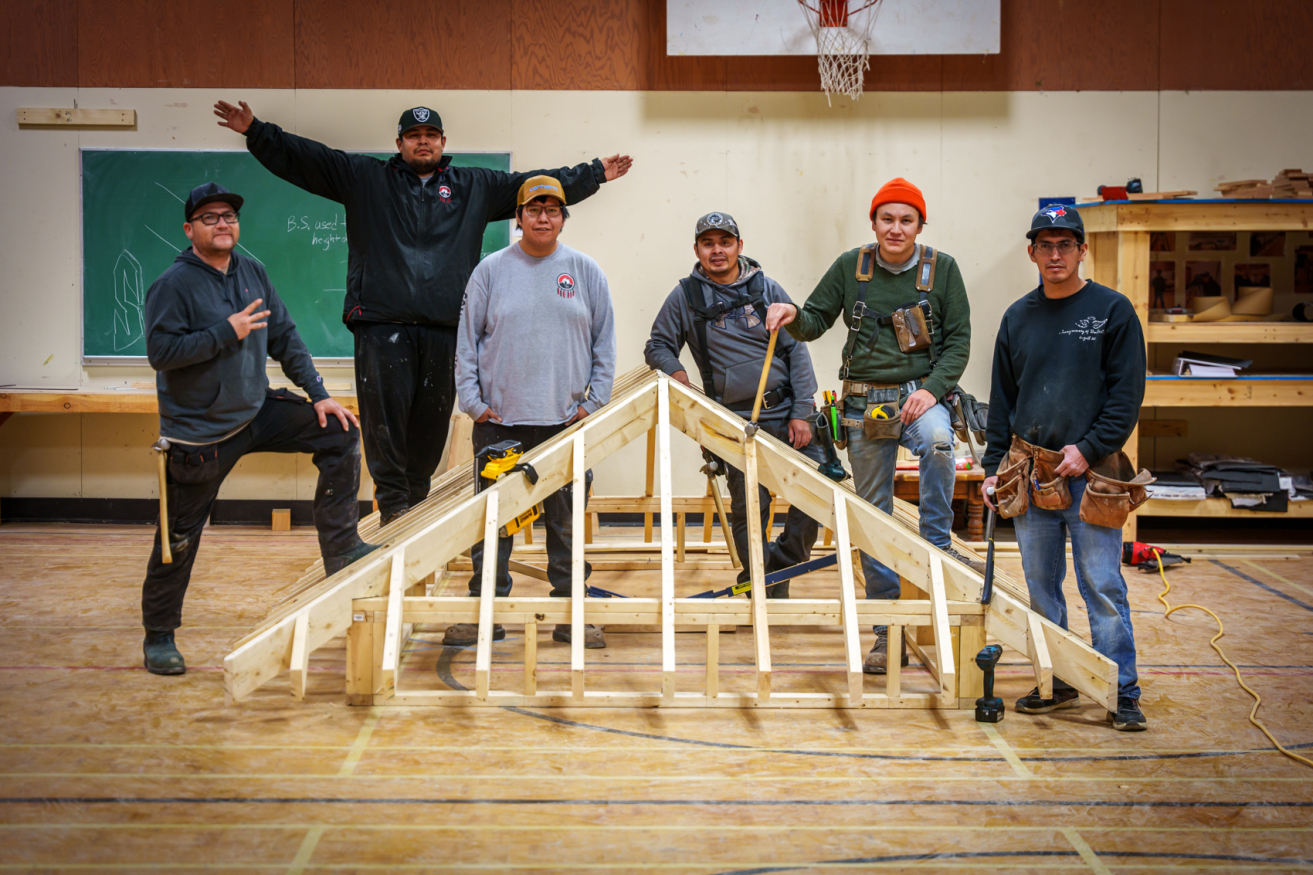From Past to Present: Supporting Indigenous Apprentices at SkilledTradesBC
From Past to Present: Supporting Indigenous Apprentices at SkilledTradesBC

In 2008, SkilledTradesBC (formerly known as Industry Training Authority) established the Indigenous Programs department, focusing on increasing the number of Indigenous apprentices in the province and building strong community partnership.
In 2008, consistent with Government’s emphasis on expanding access to training underrepresented groups, particularly with Indigenous people, women, and immigrants, SkilledTradesBC (formerly known as Industry Training Authority) established the Indigenous Programs department, focusing on increasing the number of Indigenous apprentices in the province and building strong community partnership.
Since then, our organization and the department has gone through constant development and progressed a long way to supporting the needs of Indigenous apprentices and their communities.
In this article, we highlight the journey so far, tracing the milestones and achievements that have shaped the work of the department.
Early Beginnings: Laying the Groundwork
Established in 2008 as Aboriginal Initiatives department, our Indigenous Program department began by developing strategies and training programs aimed at increasing Indigenous participation in the skilled trades. The department laid the groundwork by reviewing the needs and gaps of Indigenous apprenticeship and undertook two research projects, including the Best Practices Guide to Attracting, Training, Employing, and Retaining Indigenous People in the Trades.
The Indigenous Advisory Council (previously known as the Aboriginal Advisory Council) was formed to provide strategic advice to the department. Members of the IAC included leaders from Indigenous employment and training agencies, Indigenous communities, training providers, and government, ensuring that Indigenous voices were part of the conversation and decision making in shaping trades training for Indigenous peoples.
In 2012, the department delivered community-based partnerships, reaching 450 participants. This involved creating connections between training providers to communities to deliver trades training programs.
Gary McDermott, the first director of the department, reflected on the accomplishments during his tenure: “When I first joined the organization back in 2007, I proposed a process to engage the Indigenous communities and increase their participation in the apprenticeship system.”
“Over the years, we successfully operationalized this process by traveling to over 125 First Nations communities in B.C. and brought together Indigenous communities, training providers, unions, partners and government to help remove barriers for Indigenous peoples wanting to enter the trades. I look back on my time with the organization fondly and am grateful for SkilledTradesBC’s unconditional support.”
This was also the first time a marketing campaign was developed to increase the awareness of the skilled trades to Indigenous communities. New materials and success stories spotlighted Indigenous tradespeople and apprentices to promote opportunities in the trades.
In addition to the marketing efforts, SkilledTradesBC introduced a team of 15 Apprentice Advisors in 2014 to reach communities and provide in-person supports across the province. That year, participation of Indigenous peoples in apprenticeships doubled from 5% in 2008 to 10% in 2016.
Journey to Truth and Reconciliation
Building on these foundations, SkilledTradesBC incorporated the United Nations Declaration on the Rights of Indigenous Peoples (UNDRIP), Declaration on the Rights of Indigenous Peoples Act (DRIPA), into its work.
This included the development of cultural competency training for SkilledTradesBC staff and the formalization of partnerships with Indigenous communities through Memorandums of Understanding (MOUs). These MOUs outlined our collaboration and served two main purposes: to recognize communities as employer sponsors to hire apprentices and to work together to build more accessibility for Indigenous people to trades participation.

Photo of MOU Signing ceremony with Metis Nation in 2020.
In 2016, the Indigenous program department worked with Nuxalk Nation to launch the first Community-Based Training program, a carpentry program for Indigenous apprentices. Building on the success of this program and their determination to continue collaborating, Nuxalk Nation and SkilledTradesBC signed an MOU in 2018, strengthening their relationship and the Nation’s commitment to increasing Indigenous participation in skilled trades.
The department embarked on a Listening and Learning Tour throughout the province in 2018, meeting with many Indigenous communities to learn how to SkilledTradesBC could respond to the needs and concerns of Indigenous apprentices. The learnings from this tour led to the development and implementation of the Indigenous Inclusion Strategy.
This strategy outlined the organization’s commitment to truth and reconciliation, goals and success indicators to bring Indigenous ways of knowing, being and doing to all levels of the organization, and ways to increase the number of Indigenous apprentices in BC.
“The accomplishment that I am most proud of is building relationships with First Nations, the ISETs, Friendship Centres and the other Indigenous organizations tied to education, funding, and the trades,” expressed Michael Cameron, former director of the department who served from 2018 to 2021.
“Everywhere I went on my Listening and Learning Tour, we built awareness of our organization, which was a huge step, especially around explaining and demonstrating our commitment to The Truth and Reconciliation Commission of Canada’s Calls to Action, UNDRIP and DRIPA.”
Full steam ahead: Building relationships and operationalizing the departmental mission
In 2021, Andrew George took up the director position and led efforts to secure additional wraparound funding and track the success of apprentices in our funded programs, particularly Community-Based Training.
The department was later restructured into two branches: Truth and Reconciliation and Indigenous Programs. The Truth and Reconciliation branch focuses on initial communication with Indigenous communities and outlines how SkilledTradesBC can collaborate with them. The Indigenous Programs team manages and supports community-based training program and tracks Indigenous apprenticeship participation in the province.

SkilledTradesBC staff at Musqueam Open House Event on National Indigenous People's Day 2023
SkilledTradesBC is proud to have supported and sponsored the first Indigenous Apprenticeship Forum in B.C. in April 2024, partnering with the BC Aboriginal Training Employment Alliance (BCATEAM) to plan this successful event. At the event, SkilledTradesBC signed a Memorandum of Understanding (MOU) with the BCATEAM, which consists of 15 out the 22 ISETS, based on truth and reconciliation and focusing on collaboration and a continued relationship.

Students from Carpenter Apprentice Program Level 3 offered by Tsilhqot'in National Government (TNG) and Camosun College
In the past 3 years, there have been over 450 Indigenous participants in 81 Community-Based Training Programs. There has also been a steady increase in the proportionality of Indigenous participation in the trades: in our fiscal year 2022-23, there was an increase of 8.6% from the previous year, exceeding our target of 8%.
While we celebrate the work that’s been done so far to increase and retain Indigenous apprenticeships in the province and their success, we know there is much more is to be done. We are also proud to have strong and meaningful working relationships with First Nations, ISETS, training providers, and other organizations that provide support for Indigenous apprentices.
